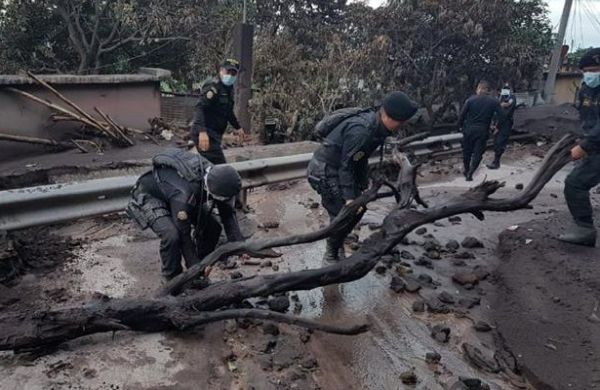
Politicians are questioning whether or not the evacuation order was relayed to persons living in the surrounding area clearly
Opposition politicians in Guatemala are calling on Sergio Cabanas, the national coordinator for the Disaster Reduction agency, or Conred, to step down accusing him of failing to heed early warnings about a possible eruption at the Fuego volcano ahead of Sunday’s disaster.
The politicians are questioning whether or not the evacuation order was relayed to persons living in the surrounding area clearly, and with adequate warning, before the deadly eruption.
Mario Taracena, a senior opposition lawmaker, said a probe should be initiated to determine if the government of Jimmy Morales was criminally negligent in its lack of response to the warnings.
“I’m telling you this as a human being: Quit,” Taracena said, in a video posted to his Twitter account. “You are not someone who is capable for this job.”
Cabanas and other officials have said there wasn’t sufficient information from Guatemala’s National Seismological Volcanic and Meteorological Institute beforehand to issue an evacuation warning.
At least 99 people were killed, and almost 200 more remain unaccounted for, according to officials.
Concepcion Hernandez, an 88-year-old survivor, who appeared covered in mud and ash in a video posted on social networks, died in the early hours of Wednesday, according to local media.
Rescue brigades continue to search for victims amid the tons of ash and sand after Fuego’s eruption, the most powerful in more than four decades.
Hot ash and the threat of a new eruption has complicated the rescue efforts.
“We can only work in places where we can stand on the roofs of houses because there is an area higher up that we cannot reach, we tried, but we had to walk on wooden boards,” said 25-year-old relief worker Diego Lorenzana.
As of Wednesday, only 25 bodies had been recovered and identified.
“It costs us a lot to identify them because some of the deceased lost their features or fingerprints (due to the lava and ash),” Fanuel Garcia, the director of the National Institute of Forensic Science said. “We will have to resort to other anthropological methods and if it is possible to take DNA samples to identify them.”
 Escambray ENGLISH EDITION
Escambray ENGLISH EDITION





Escambray reserves the right to publish comments.